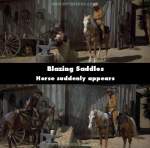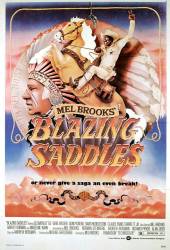
Continuity mistake: When Waco Kid is lying down on hay bales at the end of the film, there is no horse. All of a sudden when he's invited somewhere by Sheriff Bart, a horse appears. (01:33:50)
Suggested correction: It is true that the horse suddenly appears, but Jim is reclined on hay bales, not boxes.
For future reference, this is what the "change the entry's wording" option is for.
This entry is about the sudden appearance of a horse. It has nothing to do with The Waco Kid reclining on boxes nor does the entry say he was reclining on boxes. It says that he's reclining on bales of hay.
It did say bales of hay - I've left the correction and "change wording" comment online for a bit for informational purposes.





